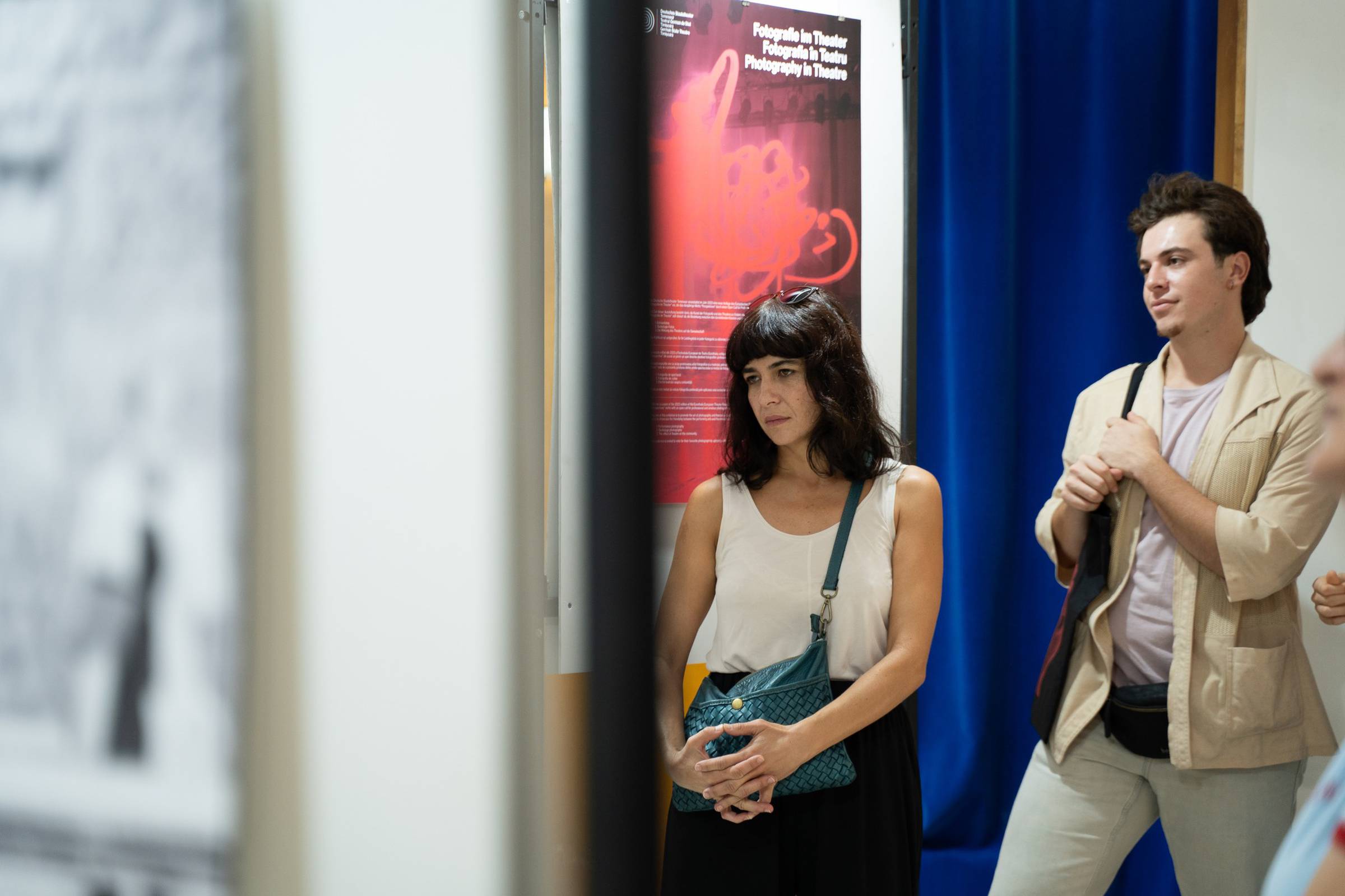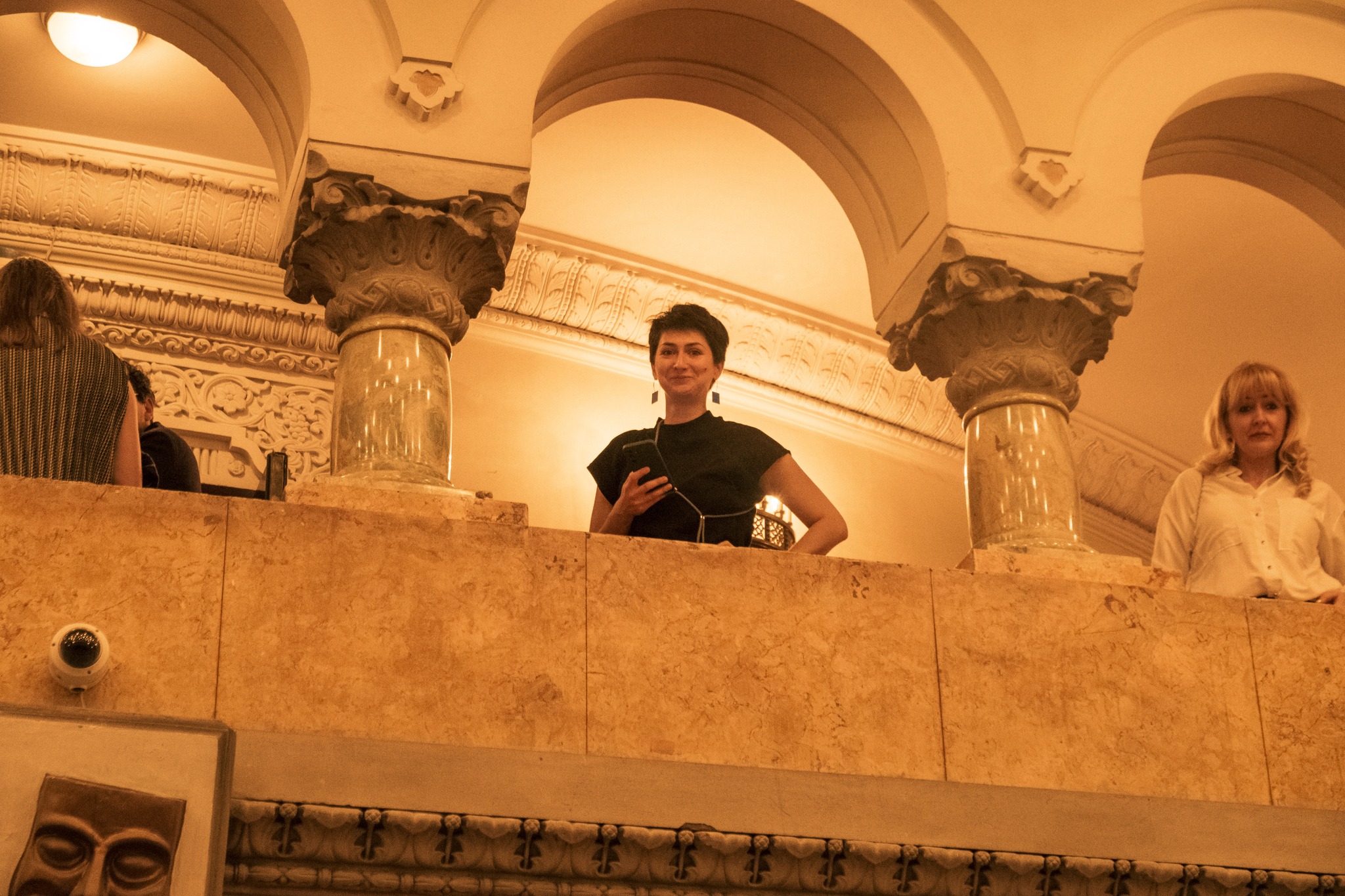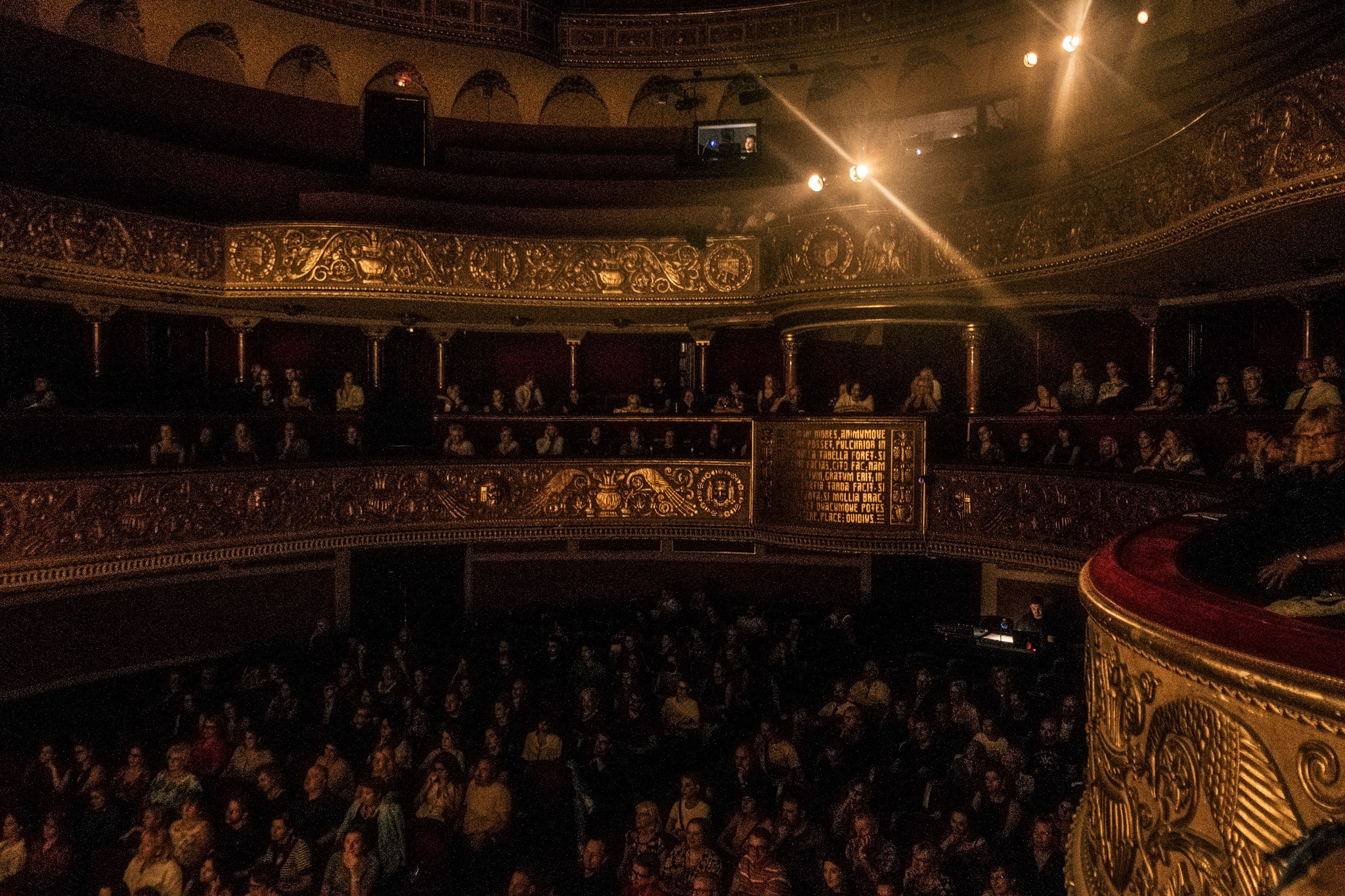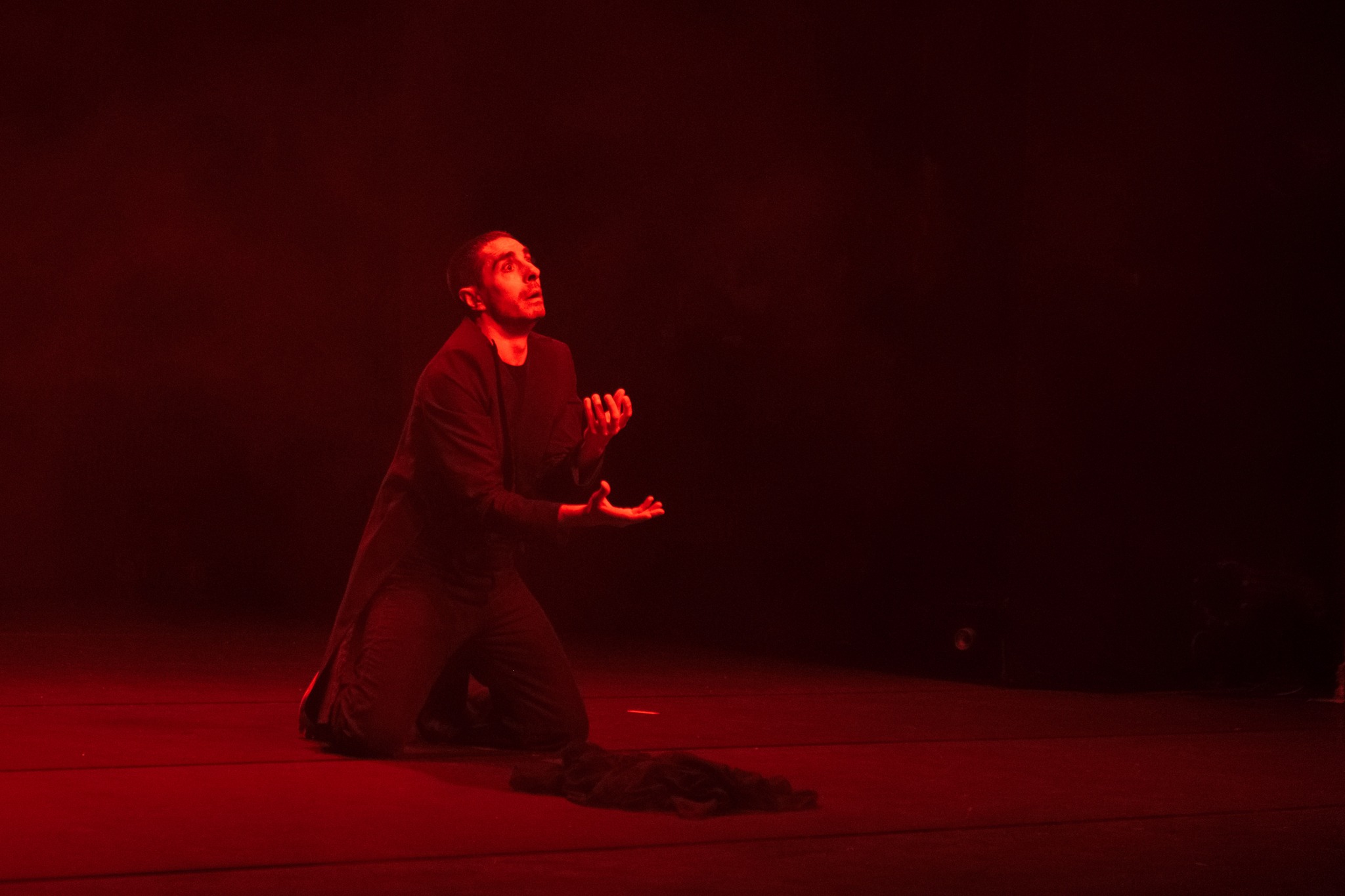
"In Fact, the Line Between Sadness and Happiness Isn't That Thick" - interview with Ioana Iacob
2 October 2023Interview by Clara Angela Roman
Sofia seems worried about the fact that she has just turned 45. Why does
your character relate to ageing in this way? Is your approach different from
the character's?
Yes, my personal approach is different, I have no problem with
celebrating birthdays. But I think she's actually not as stressed about getting
older as she is about these organized meetings. She does not like to be the
centre of attention in her personal life.
Why do you think she doesn't want that?
Maybe because it gets a little “cringe,” to use a word I learned from my
daughter.
When colleagues surprise Sofia by orchestrating a small scene with
significant moments of her life, coloured crêpe paper is used. For you, do the
colours used have a meaning?
The choice of colours was made at a rehearsal by the director, through
several attempts. I know that at some point all kinds of flags were formed,
that was not on purpose. It was more on feeling.
Sofia seems closer to the younger girl than to the older one. Why is
there this difference in attitude towards the two?
Because the older girl is from a different life, she and her ex, in
fact, her current husband, live away from her. Sofia says at some point that:
"All your life you have judged me" and that has pushed them away. The
older girl feels neglected, but I don't think a mother can make much difference
between the children.
Why does she deny her husband the divorce?
That's a very good question, to which we tried not to find an answer,
not even in the show. Pascal [Rambert] said that he likes things that are not
explained. I tried not to find justifications, because Sofia is an
unpredictable character anyway, and I think it's an enigma for her, as well.
How do you relate to the moment presented in the small show staged by
colleagues?
To me, the
text in the small performance that the colleagues are preparing for Sofia seems
very poetic. Everywhere appears the leitmotif of blood, which has a direct
reference to the Revolution of ’89. It also connects to Sofia's monologue at the end,
which is on the same topic. We, the people of Timișoara, took part in one way
or another in the Revolution.
And Sofia's monologue at the end, what does it mean to you?
I think that it captures very well the fears of a child who witnessed
the traumatic events of December ’89. I was 9 years old, and that moment
remained very present in my mind. I saw all the atrocities on TV. This seems
strange to me and makes me wonder if I would have let my daughter see those
things on TV. We saw everything: how Ceausescu was executed, the inert bodies
on the ground, images from the Revolution with dead people on the streets. No
one forbade us to look at them. I don't know if everything I saw made me more
mature, but it certainly stayed with me.
Why was this subject of the Revolution approached?
It seems to me that it is a neural point of this city, and it was
natural to be brought up. The show is quite anchored in the life of the city.
As specified in the description of the show, it is recommended for
persons over 14 years old. What message is sent to a viewer of this age? What
is the difference in perception of a mature audience compared to a young one?
I don't know why it's over 14 years old. My daughter (who is 12 years
old) saw it and said she liked it. Although, at a rehearsal, she told me that
it was boring and that we talked too much. But at the premiere, to my surprise,
she liked it. This play is about people, about a group of actors who spend an
evening together. Certain things are revealed, all kinds of sensations are
created... like in life.
Many aspects are portrayed negatively in the show. Everyone seems to be
sad and poor. I thought that a spectator who knows nothing about theatre and
actors would interpret that this is how the world of theatre is. Anyway, this
is a stereotype: the poor, sad and troubled actor.
This is one aspect, indeed, but on the other hand, there is the other
side: the moments when you are happy. I believe that everyone is like this. I
do not think the director wanted to highlight this part, but how you can be
both sad and happy at the same time and, in fact, the line between these two
emotions is not that thick.
---
“Ph[r]ases”- Creative Formulas is a programme conceived by Diana
Katharina and Daniela Șilindean together with the team of the German State
Theatre Timișoara, dedicated to the theatre chronicle within the Eurothalia
2023 European Theatre Festival, held between 20-30 September 2023, financed by
the National Cultural Program Timișoara - European Capital of Culture in 2023.


